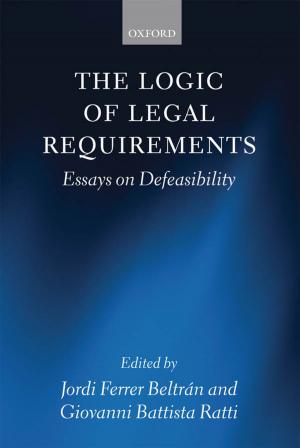Responsibility: The Epistemic Condition
Nonfiction, Religion & Spirituality, Philosophy, Epistemology, Ethics & Moral Philosophy| Author: | ISBN: | 9780191085239 | |
| Publisher: | OUP Oxford | Publication: | June 16, 2017 |
| Imprint: | OUP Oxford | Language: | English |
| Author: | |
| ISBN: | 9780191085239 |
| Publisher: | OUP Oxford |
| Publication: | June 16, 2017 |
| Imprint: | OUP Oxford |
| Language: | English |
Philosophers have long agreed that moral responsibility might not only have a freedom condition, but also an epistemic condition. Moral responsibility and knowledge interact, but the question is exactly how. Ignorance might constitute an excuse, but the question is exactly when. Surprisingly enough, the epistemic condition has only recently attracted the attention of scholars. This volume sets the agenda. Sixteen new essays address the following central questions: Does the epistemic condition require akrasia? Why does blameless ignorance excuse? Does moral ignorance sustained by one's culture excuse? Does the epistemic condition involve knowledge of the wrongness or wrongmaking features of one's action? Is the epistemic condition an independent condition, or is it derivative from one's quality of will or intentions? Is the epistemic condition sensitive to degrees of difficulty? Are there different kinds of moral responsibility and thus multiple epistemic conditions? Is the epistemic condition revisionary? What is the basic structure of the epistemic condition?
Philosophers have long agreed that moral responsibility might not only have a freedom condition, but also an epistemic condition. Moral responsibility and knowledge interact, but the question is exactly how. Ignorance might constitute an excuse, but the question is exactly when. Surprisingly enough, the epistemic condition has only recently attracted the attention of scholars. This volume sets the agenda. Sixteen new essays address the following central questions: Does the epistemic condition require akrasia? Why does blameless ignorance excuse? Does moral ignorance sustained by one's culture excuse? Does the epistemic condition involve knowledge of the wrongness or wrongmaking features of one's action? Is the epistemic condition an independent condition, or is it derivative from one's quality of will or intentions? Is the epistemic condition sensitive to degrees of difficulty? Are there different kinds of moral responsibility and thus multiple epistemic conditions? Is the epistemic condition revisionary? What is the basic structure of the epistemic condition?















